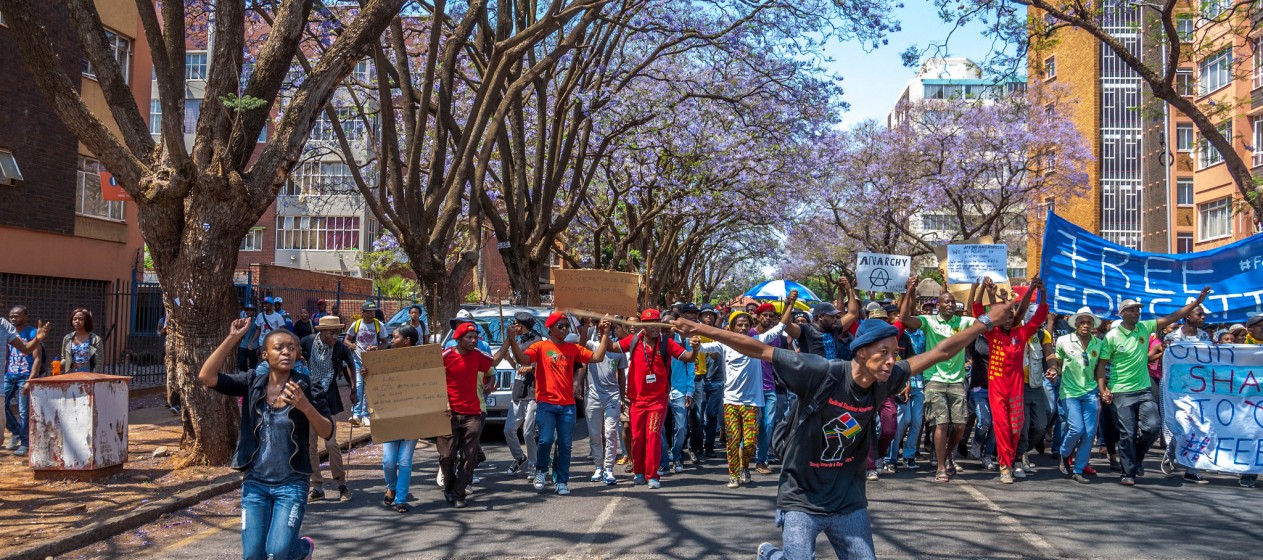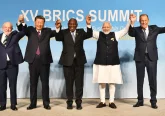Education needs to be valued as a means and an end.
Governments invest in what they value. In order for further education to receive the investment it desperately needs, governments must recognise that it is both inherently valuable as well as being essential for training the next generation of Africans to contribute to the social, economic, and political life of the continent. That means investing in the arts and humanities, as well as investing in science and engineering.
Currently, investment in African universities is lacking, and the quality of education is suffering as a result. While African governments now invest around US$2000 of public funding per student (more than the average for developing countries), this follows decades of underinvestment in which drives for education focused on primary and secondary learning.
Unless investment increases to keep pace with growing enrolment numbers, African universities will continue to be severely stretched. At present, the average number of students per lecturer in sub-Saharan Africa is twice as high as the international average. In Kenya, studies recorded up to 64 students per lecturer. High quality teaching and learning environments are well-resourced ones: African governments must invest if they want to reap the rewards of a highly educated citizenry.
Academic freedom must be protected
Academics thrive when they are given the liberty to pursue original and timely issues, and the space to provide critical analysis. Their work, in turn, challenges society to grow and improve. Currently 25% of African states constitutionally protect academic freedom. Documents like the Dar es Salaam Declaration on Academic Freedom and Social Responsibility of Academics, and the Kampala Declaration on Intellectual Freedom and Social Responsibility are also encouraging. However, in many countries there is still much room for improvement.
In countries like the DRC, institutional autonomy is jeopardised by appointment procedures: the president is able to appoint the university rector, who in turn appoints deans, vice-deans and heads of departments. Government ministerial regulations also shape what programmes are offered, and how students are recruited. In addition to stifling academic freedom, such measures drive students to seek education outside their state’s borders, depriving it of their skills and forfeiting the contribution they may have otherwise made to its development.
Even where such institutional control is not formally in place, academic freedom can be constrained by the broader political restrictions on freedom of speech, and the government’s propensity to marginalise, arrest, or threaten those who criticise the regime.
Higher education must be accessible
The most obvious barrier for many would-be students is financial. As thousands of South African students in #feesmustfall protests testified, fees play a large role in determining whether many learners across the continent can enrol or complete their education.
Currently, it costs R64,500 to complete a first year Bachelor of Medicine at the University of Cape Town. It is, therefore, unsurprising that 55% of students who enrol in South African universities, will not graduate.
But access is not a purely financial issue: there are many other barriers from poor primary and secondary education to gender discrimination that can make university effectively unattainable. Across sub-Saharan Africa, for example, female students currently constitute just 38% of the numbers enrolled in higher education.
Education must be inclusive and empowering
Promoting inclusive education means ensuring that curriculums include the voices of marginalised or historically marginalised populations; ensuring that the academy speaks to and with people, not just about them; enabling classrooms to be spaces in which all voices are heard and valued; and creating faculties that recruit fairly and inclusively.
The recent protests and conversations that have surrounded #feesmustfall #RhodesMustFall and #CanaanStudies suggest that universities in Africa are still marginalising the voices that should be at the centre of their teaching, learning, and research. Thanks to the persistence of protestors, there are some hopeful signs of change within South African universities, marking a step forward on a long road to transformation.
To facilitate more inclusive discussions at the university level, we also need to explore how knowledge on Africa is produced and published. Currently, far more literature is produced within African studies by non-African scholars than by those from the continent. This needs to change. Again, change is not easy. While journals like African Affairs (co-edited by Nic Cheeseman) hold writing workshops in African universities and offer prizes to encourage and celebrate African writers, they rarely publish issues that feature a majority of African authors.
Some of the reasons for this gap take us back to the issue of funding. Many African lecturers are hopelessly overstretched teaching large class sizes. At the same time, they receive little in the way of admin support or funding to cover the costs of their research.
Moving Towards Solutions
The recent wave of protests in South Africa is just the latest in a series of efforts by students, scholars and governments across Africa to tackle these challenges. As academics in the UK, we celebrate these moves forward, stand in solidarity with those who make them, and reflect on the ways in which the tough questions being raised can help to produce a more level playing field.
In this spirit of solidarity we have taken three small steps, and would warmly welcome a broader dialogue with African scholars across the continent for ways to effect larger institutional change.
First, in response to requests from colleagues and friends, we have assembled a ‘Decolonising the University’ reading list, showcasing the vital and path-breaking research on Africa by African scholars, which is available on our website, www.democracyinafrica.org. If you spot anything that we have overlooked, please get in touch and let us know and we will add it to the list.
Second, our reading list is just the start of a broader discussion on ‘Decolonising the University’ that will continue with the University of Edinburgh’s conference on the issue this coming April. For more details, check out www.decolonizingtheacademy.wordpress.com.
Finally, we continue to create new scholarships for African students who wish to study at the University of Oxford or the University of Edinburgh. Our hope is to build accessible platforms for African students, contributing to the expanding number of graduate students across the continent, who are already contributing so much to their respective societies. We are incredibly grateful partners such as Mitsui and Co. Ltd, Standard Bank, ENI, DFID, and Canon Collins Trust for generously supporting our universities with these scholarships.
Kenyan readers may be interested to know that the Oxford and Cambridge Society of Kenya has teamed up with the Swire Educational Trust to generously fund a scholarship for a student ordinarily resident in Kenya to read for a one year Master’s course at St Antony’s College. Kenyans who have a strong undergraduate background and have not yet gone on to do a PhD and are interested in studying at Oxford University should apply. Full details can be found at www.africanstudies.ox.ac.uk/scholarships. Similar scholarships are available at Edinburgh University, and can be located at www.ed.ac.uk/student-funding/search-scholarships.
Striving to improve the investment, independence, accessibility and inclusivity of higher education in Africa, and beyond, is as complex as it is crucial. Its success will depend on strong partnerships between academics within and without the continent. These partnerships must embody the changes that we seek: putting at their centre the priorities, voices, and vibrant scholarship of Africa’s outstanding researchers.
This blog post first appeared at the Daily Nation.







